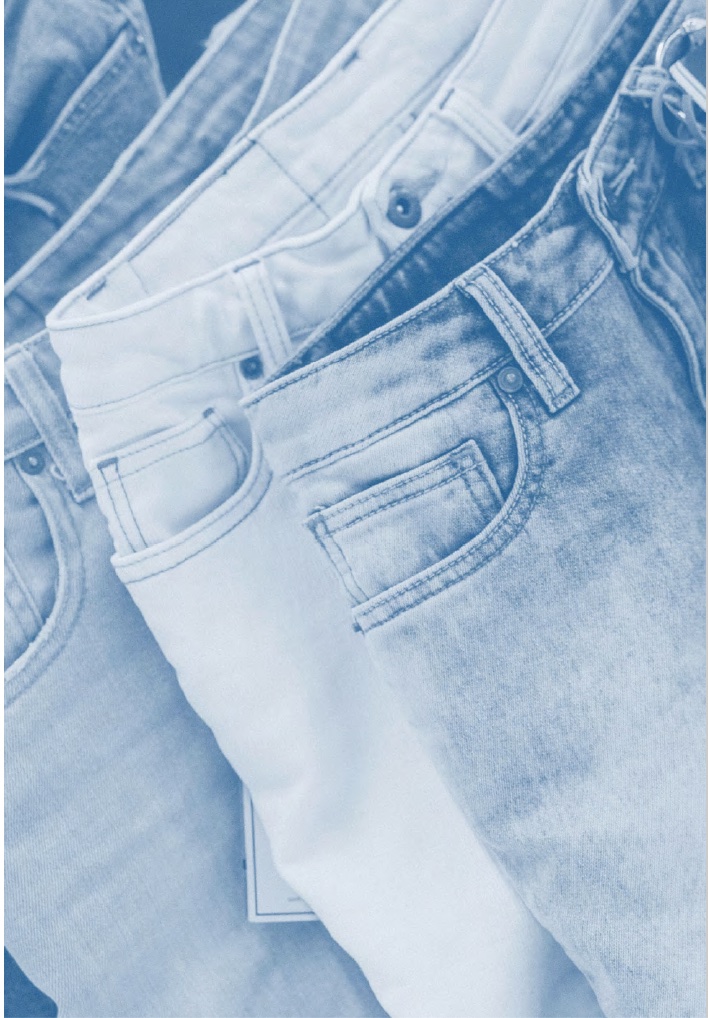Supply Chain Leadership Series III: Andrew Olah – Changing the Denim Industry One Brand at a Time
Andrew Olah claims he is in the twilight of his career. But everything he is involved seems to be to the contrary! Olah has recently sold his textile business, Olah Inc, and has also sold a minority interest of his denim fashion show, Kingpins, which is held annually in Amsterdam and New York, (and was held in Hong Kong and China before COVID). – Olah Inc. was started by his father, who was a refugee from Hungary in 1956 He moved to Toronto, Canada, and met another individual from Czechoslovakia, and the two formed a partnership to create a textile agency. Andrew worked as a summer student selling for his father, and was making great commissions! In his third year of working as asales person, his father passed away, and suddenly Andrew was the president of Olah Inc.

Andrew notes that “I didn’t know much, but I and had to support our family and learn the business in Canada. As a textile agency, we were like a drug store, we sold everything, including shower curtains, fake fur, jackets, everything. I decided I didn’t like being the dumbest person in the room about every type of fabric, so I decided to focus on the jeans industry. Most of the garment industry at the time was sort of “old fashioned”, a bit rude and unpleasant, but the jeans industry in the 60s and 70s had Levis, which was a fun company, and was growing like crazy. Everybody working in the industry was young, and didn’t wear suits and ties.” Olah Inc. focused on selling casual fabrics and denim to Levi and Gap and was fortunate to hitch their business to the Gap as it grew from 350 stores to 5000.
When Olah started in denim, the majority of denim was all produced in America. As the industry has grown, it moved over to Japan, Italy, Canada, and other flowed from there to Mexico, Europe, Portugal, Turkey, than Hong Kong, Taiwan, and Indonesia – and eventually settled in China and in Bangladesh. That is where most of the business goes today – Bangladesh and Pakistan. Both countries have invested enormously in skills and machinery.
The Origin of the Kingpins Show
In 1998 Olah moved the company to NYC. The company was doing well – but not growing at the speed desired. “So I decided to start a seasonal party where my mills would gather and present their products in an art gallery in Soho. There we’d have a party and showcase our products with food and drink and music.. and create an ambience much like as if customers came to my home.”
Olah notes that this was the start of Kingpins. “I found the best Italian accessory supplier, as well as a label supplier and the best Laundry in Italy to also join the showcase group so by accident we created the first ever supply chain show for the denim industry.”
Challenges Facing the Denim Apparel Industry
There are always challenges facing the denim supply chain today and in the past. Some of these include the following:

- Currency is one of the most difficult problems. Each country has their own machinery, and all exports involve some form of currency hedging, because there are so many cross-border trades. And most often, people want things fast! So you have to make split second decisions. Currency fluctuations are constant and are a historical industry problem. Not only does it affect the cost of a product but also its components. For example, China, India, the US, and Pakistan (in that order) are the biggest suppliers of cotton, a critical component in jeans. If someone wants to import US cotton into China – and the exchange rate between the two countries has altered, than the jean cost is impacted. Each country has its own cotton price and of course cotton gins. Brokers hedge currency fluctuations and fiber fluctuations but brands and retailers do not. Most buyers use very low grade technology and different techniques (if any) to hedge. While American Airlines hedges on fuel, most brands don’t on fiber. They assume others will do it for them.
- Transportation was especially difficult during COVID, and navigating the different trade rules has become increasingly complicated, and there are so many variables. Tariffs and other regulations are often a problem, as they are also shifting weekly in some cases.
- Fashion trends are an on-going problem. Denim sales are suffering right now, because there is so much athletic wear (nylon pants) that is in vogue. We can’t control fashion trends, but they are a big obstacle. Brands try intellectually to defeat these trends by being more predictive, but this is increasingly difficult as consumer are so fickle. Thee have also had three big recessions that have complicated matters over the years.
The Transformers Foundation
After a few years, Olah started a foundation called the Transformers Foundation, and also something called the Ethical Denim Council, where he wants to focus the rest of his career. Transformers came out of the Kingpins Show. Andrew notes that “one of the things we believed should be a key component in our shows was to get experts to come in and speak about Production and Components in the industry. We wanted speakers who were working in the supply chain to be the ones on stage doing the talking. Soon we realized our speakers were excellent but the seminar times allowed were too short. So we created Kingpins Transformers, a seminar series where everyone from the supply chain was represented. And then we realized that if we wanted to create IMPACT in the industry with regards to sustainability our Transformers had to be a non-profit organization which Transformers Foundation is today.
We have had a lot of discussion recently on ethical workplaces. Over the last few years, there has been a lot of discussion about Xinjiang cotton and forced labour. Xinjiang is a province in north west China and has been claimed to be using forced labor for more than 25 years – which many people have known about for a long time. During the Trump administration the government decided it was a “real” problem – and out of the blue decided Americans can no longer use cotton from that region. Chinese cotton in total accounts for 22% of the world’s production.
The big brands’ simplistic answer was to simply stop buying anything in China anymore which really does not solve the problem since cotton is made into the yarn and ships to all over the world. Nonetheless as things sit today if US Customs and Border Control even has a scent of Xinjiang cotton in it, a garment (or toy or any product) will be blocked from entering the country. And so stopping Xinjiang cotton is like chasing money launderers –that cotton is everywhere and is an infestation all over the world.
The Ethical Denim Council
The Ethical Denim Council came out of a study that the Transformers Foundation we did on unethical behavior – which came out with two recommendations. The first is that there should be some ethical principles in our industry. Such principles used to be intuitive: simple things like don’t be dishonest, be loyal to your supplier, and do the right thing. These concepts of business behavior are fundamental – it is ridiculous that we need today to remind the industry they are necessary. And our second recommendation was to start an Ethical Council. The Ethical Denim Council went around the industry asking for suppliers to agree to support these Ethical principles.
The idea is simple since it is unreasonable for a supplier to sue a buyer. Not only is a garment order a complex array of components and timings, realistically a factory in Pakistan supplying a public company in America would have come to the US and fight a case which is both expensive and a long process. Late deliveries can be the result of many things, late delivery of sewing thread or labels or a host of reasons perhaps none the fault of the garment factory. So there is no legal remedy in our industry to address arguments over claims.
Social compliance is required for garment factories to protect a brand’s reputation. It’s been proven that a brands reputation can be severely damaged if they are found to be working with factory that abuses their workers.
“So with the above in mind we thought about how a movie review system could help our supply partners. The council would involve different members of industry (non-denim experts), including individuals from business, NGO’s, academia, etc., who like movie critics would agree to hear cases where unethical behavior is claimed to have gone on. Both sides can present the case, and hear the arguments but in the end a judgement is made by impartial humans – is there unethical behavior or not? It may be a tie. At least there is a hearing and the results is on the EDC website.”
Career Advice for Students
Olah reflects on some key lessons learned that he’d like to pass on to students. “The first thing is that you have to love what you do. That love gives you the adrenaline to fail and to overcome failure. Whatever you do is more than likely not going to work out initially – I believe you have to go through a certain number of failures and have to have passion to overcome them over time. It is like baseball – there is always one guy who is a really fantastic player but not the most talented. This is from passion, from giving your job everything you have – that comes from loving of what you do.
The second thing is a deep seated desire to learn the craft of your job. How to be the best – vital as a person.
Third – decency. You have to have kindness and empathy. There is no such thing about being successful and not having empathy – to your customer, competitors, suppliers. It is incredibly valuable and so important -and if you can use it – everything will work.”